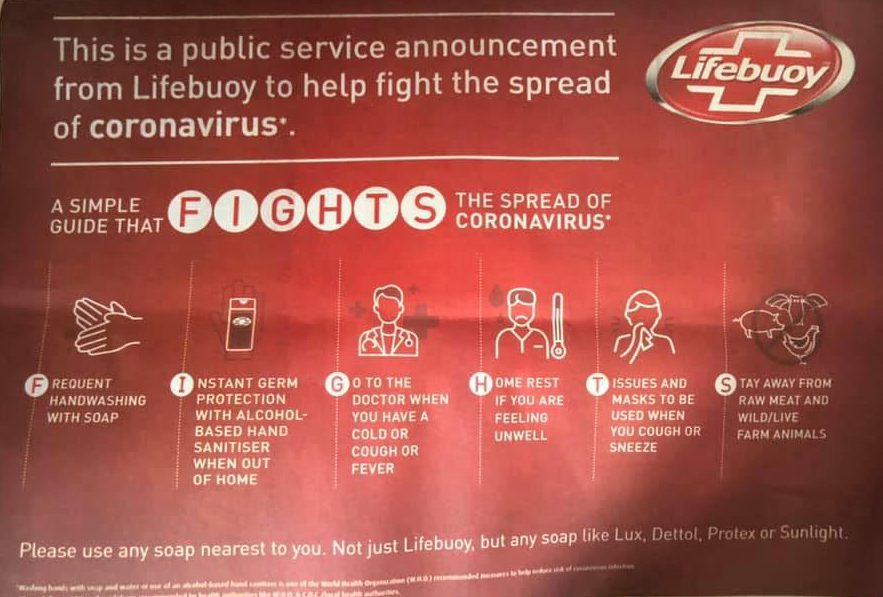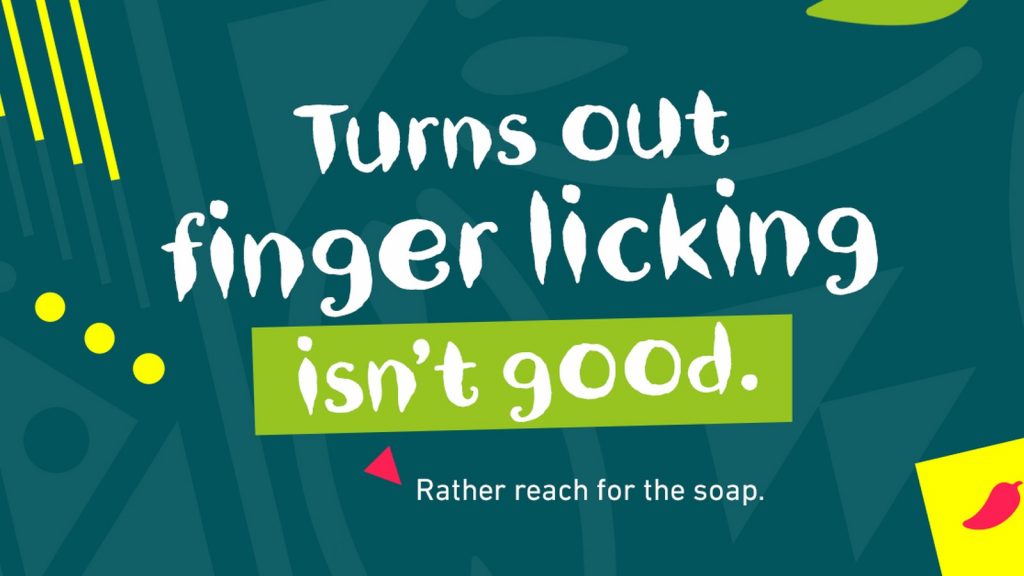The Covid-19 global pandemic is the absolute definition of something that is outside of all of our controls. Whilst we cannot change what is happening, we can decide how to respond to it. This is true for us as individuals, as a country and even as a planet. As a small business owner and marketer, I’m interested in the decisions and actions that brands and businesses are taking during this time especially since it feels as if the way we think, live, work, shop, as well as the way we go about our everyday lives, might shift even after the virus is under control.
There are those who believe that the very notion of brands will be destroyed by this pandemic. I believe it is more likely that the surviving brands and businesses will be those that are able to keep fulfilling customer needs – who are in a state of flux – and those that are able to remain connected and relevant.
With this in mind, let’s use this crisis as an opportunity to get our houses in order:
1. Show your customers who your brand really is
Brands are built from the inside out. Use this time to ensure all aspects of your brand offer are aligned with what you’re communicating about it. The offer (product or service), how it is priced and how it is distributed or sold should all communicate how your brand is positioned as well as your brand values.
There are many good examples of brands showing who they are. I really loved the Lifebuoy (Unilever) public service ad which pointed people to other soap brands, such as Dettol, which are sold by competitor, Reckitt Benckiser, as an alternative to their own brand.
Public Service Announcement from Lifebuoy
This demonstrates a confidence in their brand, a real care for the people who use their products (putting people before profit) and a true leadership stance. Well-developed brands have a purpose that ascends profit and now is the time for this to show.
Top tip: Think of a way that you can show your customers what your brand believes in and stands for.
2. Respond to the market’s changing needs
Agility and the ability to flex is probably the single most important aspect of operating a business in times of such enormous flux.
Some small and larger brands have been clever about responding to the needs of their market. Catering businesses that had some big events cancelled for example are now offering home deliveries for family meals while some clothing manufacturers have converted their production to develop fabric masks. There are plenty of other smart businesses who too have adjusted what they do in response to a real need in the market.
This is also a time to remember the huge difference between spotting an opportunity and being opportunistic. Spotting an opportunity is making a hand sanitiser and finding a channel to sell it though. Being opportunistic is selling that sanitiser at 10 times the normal price.
Top tip: Think about what changes you can make to your offer and how you can deliver your product or service differently. This might be offering something different to the same market or to a new market or altering the way your product or service is delivered.
NOTE: Change is the only certainty, I started writing this pre-lockdown and things have shifted again since then. We all know that changes will continue to happen, in all likelihood more and more rapidly, so we need to build agility into our businesses.
3. Transition as soon as possible to a multichannel offering
Delivering an offering virtually is going to become a necessity, not only an option, for anyone who wants to remain in business. This is not only true for brands servicing the top end of the market; there are around 20-million people in South Africa who now have access to a smartphone meaning brands across the spectrum should consider going digital to some degree.
For instance, learning institutions that haven’t already done so are now being forced to offer their curriculums online. Even gyms are offering their classes via Whatsapp or Zoom.
While online retail has been growing exponentially it is still only a small percentage of overall retail sales at around 1.4 % in South Africa in 2019. Covid-19 could however shift things substantially in the short term and maybe forever.
Consider this: Checkers (Sixty60 beta app) together with Woolworths and Pick ‘n Pay’s online delivery services are straining under the pressure of a massive increase in demand. Checkers has managed to keep to same day delivery (albeit with a restriction in the number of orders placed per day) but Pick ‘n Pay and Woolworths now have a longer than two-week delay in delivery time. They can really only get away with this in a pandemic where people have fewer options. These retailers are going to have to adjust and improve their way of delivering to the market. It is likely that the demand for online retail will also get a massive shot in the arm because of this abnormal and unexpected crisis.
Top tip: The transition to deliver and communicate across channels is much harder for some businesses to do than it is for others. Where possible offer your service through a digital channel. If you’re selling something and don’t have an online channel, use Facebook or Instagram and get a website up as soon as you can.
4. Keep walking and keep talking
There is certainly such a thing as over communication. Below is a case in point from my Facebook feed:
Over communication, especially from brands that you don’t feel are truly part of your inner circle, feels inauthentic and I’ve seen a good few examples of this over the coronavirus crisis, including those who communicated with me via email after I’d unsubscribed from them some time back.
However, now is the time to keep your existing customers close and keep in communication with them. BBH Labs measured what happened after the sub-prime crisis: brands that went “dark” and stopped communicating took five years to recover and suffered significant brand declines proving that reductions create short-term returns but long-term losses. Strong brands recovered nine x faster in the financial crash.
If your brand doesn’t advertise in media, use social media if you have a presence there or communicate via email or SMS. It makes sense, at very least, to inform your customer base about your availability during the lockdown and how to contact you if needed.
Top tip: Keep a presence: brands that pull back excessively in crisis times take longer to recover and can suffer significant brand declines.
If you haven’t got a social media presence, explore which social media platform makes the most sense for your audience. They each have different strengths and audiences. Be realistic about how much time it takes to manage a social media channel.
You can also use email provided that you have permission to communicate and are POPIA compliant. Don’t communicate with your audience for the sake of communication.
5. Be useful, inspiring or be entertaining
Take care in terms of what is communicated; people are anxious and it is an easy time to make a mistake. Now is when the marketing team needs to lead. If there is no internal marketing team, it makes sense to keep your PR company, advertising agency or a marketing professional on speed dial.
Each piece of brand communication or content needs to have a clear intent and a pretty good understanding of what your audience’s life looks like and the problems that they currently face.
A brand can offer up genuinely useful content or be useful by giving their customers an offer. Ideally it should be both. A great example is Yuppiechef. It is offering online cooking courses worth R3 000 free to all of those in hibernation.
Inspiration is also sorely needed at this time and SA Tourism knocked it out of the park with this one
Don’t travel now so you can travel later
South Africans tend to handle things with humour and so anything that provides some light relief is also appreciated. As we’ve come to expect, Nando’s offered up a friendly but hilarious jibe at their most immediate competitor which gave us a much-needed giggle.
What we know for sure is that the economic knock-on of the coronavirus will be monumental and that some businesses won’t survive. But, by putting things in place that will make your brand fitter and stronger, you have the potential to be one of the businesses that survives and comes out better on the other side.
Amanda Reekie is the Founding Director of imagineNATION Alliance, imaginenationalliance.co.za an insights-led communication business and www.ovatoyou.africa, a survey platform that allows brands to gain insight from an objective, national audience.


